Published 21 Aug 2025
Automotive Sales Training That Over-Delivers Every Time
Dealership leaders often warn salespeople not to “over-promise” because when expectations are set too high, disappointment follows. Yet, buyers want more than the minimum. They expect honesty, speed, and personal touches that make them feel valued. This is where automotive sales training can reshape the meaning of over-promising.
Over-promising doesn’t mean exaggerating features or guaranteeing results outside your control. Instead, it means setting confident expectations that you know your team can surpass. Imagine a salesperson saying, “I’ll send you a payment breakdown tomorrow.” That’s the baseline.
Now picture them delivering it early, alongside a personalized video explaining the numbers and a short guide on saving fuel in city traffic. That’s exceeding expectations without stepping outside the truth.
Why Over-Promise Doesn’t Mean Over-Promise

The phrase “over-promise” has been misused for years, often tied to empty guarantees. In the context of automotive sales training, it should mean something different: raising expectations in ways your team can absolutely meet and often exceed.
The key lies in focusing on controllable promises. Salespeople should never assure customers of bank approvals, shipping timelines, or anything dependent on outside parties. Instead, they should commit to actions within their control. Examples include:
-
Sending a two-option quote by a specific time.
-
Recording a quick video that demonstrates a feature the customer asked about.
-
Following up with a clear comparison between lease and finance paths.
When these commitments are delivered on schedule, and paired with an unexpected bonus such as a free maintenance tip sheet or an offer for a courtesy wash, the experience feels richer. Customers walk away feeling valued rather than wary.
This distinction matters because today’s buyers are cautious. They’ve dealt with vague promises before. By training your team to make precise commitments and then add thoughtful touches, you create a cycle of trust and delight. In other words, automotive sales training shifts the meaning of “over-promise” from hype to strategy. It becomes less about big words and more about measurable actions that consistently impress.
Role-Plays That Crush Expectations

The habits that shape customer experiences are forged in practice, not in theory. Role-plays are essential to automotive sales training, but too often they’re repetitive and predictable. To prepare salespeople to exceed expectations, role-plays must stretch beyond the standard script.
Start with controlled scenarios. A salesperson might promise to send a quote within an hour. In training, they learn to follow through while also attaching a short video tour that makes the numbers easier to understand. This simple rhythm of having a clear promise, timely delivery, and thoughtful bonus becomes second nature.
Once the basics are secure, move into recovery scenarios. Imagine a customer upset about a low trade-in value. The rep practices addressing the issue honestly, committing to a re-check by the end of the day, and providing guidance on how service records or small touch-ups can boost value. Here, over-delivery isn’t about solving everything instantly but rather about combining honesty with added support.
Finally, introduce proactive scenarios. After a test drive, a rep might promise a next-day follow-up. In role-play, they practice sending a recap video the same evening, highlighting features the customer loved most. It feels personal and timely, turning a standard touchpoint into a memorable experience.
By layering these role-plays, automotive sales training builds instincts. Salespeople learn not just to meet expectations, but to instinctively look for ways to go further.
Measuring How Your Team Over-Delivers

Good intentions don’t improve performance unless they can be tracked. That’s why automotive sales training should include measurable standards for over-delivery. Sales volume tells you if deals are closing, but it doesn’t capture whether customers feel surprised and impressed.
Here are a few KPIs that reveal how consistently your team is surpassing expectations:
-
First-Response Speed (FRS): Percentage of leads answered within 10 minutes.
-
Value-Add Rate (VAR): Percentage of interactions that included something extra—a video, tip, or bonus comparison.
-
Promise Accuracy (PA): Ratio of commitments kept exactly on time.
-
Surprise Upgrade Count (SUC): Number of deals that included unadvertised benefits like a free car wash or accessory.
-
Review Mentions (RM): Instances where customers use phrases like “above expectations” or “better than I thought.”
These metrics make over-delivery tangible. Imagine reporting that 70% of your salespeople’s contacts included a bonus item, or that review mentions of “beyond expectations” rose by 25% in one quarter. Those numbers turn customer delight into a performance measure.
When dealerships integrate these KPIs into coaching sessions and leaderboards, over-delivery becomes a routine focus. Automotive sales training shifts from abstract ideals to data-backed behaviors. And as the numbers rise, so does customer loyalty because they experience the difference firsthand.
Training Checklists, Surprise Scripts, and Follow-Through Templates

Even the best ideas fall flat if they’re not easy to execute. That’s why automotive sales training should include practical tools that guide salespeople step by step. These resources save time and reduce guesswork, making it simple to turn over-delivery into a habit.
Promise-Plus Checklist:
-
Confirm the customer’s main priority.
-
Make one clear, specific commitment with a timeline.
-
Add a value element tied to their priority.
-
Confirm the next step with a set date.
-
Record the interaction in CRM.
Sample Surprise Call Guides:
-
Before a call: “I’ll send you a short video answering the most common question about this model before we talk.”
-
After a test drive: “I recorded a quick recap of the two features you liked most. It’ll be in your inbox this evening.”
-
VIP follow-up: “I prepared a lease vs. buy breakdown with your city’s tax details. It’ll be ready by 4:00.”
Templates can cover follow-up emails, service reminders, and gratitude messages. For example, a “thank you” video after a demo not only reminds customers of the experience but also signals effort that goes beyond the standard process.
By giving salespeople these plug-and-play tools, automotive sales training ensures that going the extra mile feels simple and natural instead of extra work.
Over-Promise vs. Customer Disappointment

One of the greatest risks in sales is disappointing a customer because expectations were set too high. To prevent this, automotive sales training must clarify where to draw the line between bold promises and risky claims.
The rule is straightforward: never promise what you can’t control. A salesperson cannot guarantee loan approval, delivery times, or trade values. What they can guarantee is their own response time, follow-up process, and communication clarity.
Examples of safe, strong promises include:
-
“I’ll update you daily until your car arrives.”
-
“I’ll call with the bank’s response by 3:00 today.”
-
“I’ll prepare two appraisal options for you before the day ends.”
These promises are reliable because they depend solely on the salesperson’s actions. The customer feels reassured by the consistency, and the over-delivery comes from what’s added like a video explanation, a coupon for a free car wash, or a helpful tip sheet.
By training salespeople to focus only on controllable commitments, you protect your dealership’s reputation while still raising expectations. Customers don’t expect perfection, but they do expect reliability. With this balance in place, automotive sales training helps teams stand out as both trustworthy and memorable.
How Managers Can Model Over-Deliver Behavior

Salespeople look to leadership for cues on how to behave. If managers cut corners, the team will too. That’s why effective automotive sales training requires leaders to model over-delivery in their own actions.
This can start with small but powerful gestures. A general manager who personally calls back an unhappy customer within 15 minutes proves that responsiveness is non-negotiable. A sales manager who sends handwritten thank-you notes shows that personal touches matter at every level. Leaders who recognize staff publicly for going beyond expectations encourage the same behavior in others.
Managers should also create systems for accountability. For example, run a weekly “Promise Audit,” reviewing a handful of deals to confirm that commitments were met on time and that bonus value was added. Share positive examples in team meetings to reinforce good habits, while privately coaching those who fell short.
Consistency is key. When leadership makes over-delivery visible and repeatable, it stops being a slogan and becomes part of the dealership’s culture. Automotive sales training is most effective when reinforced by daily behavior at the top. That way, salespeople not only hear what’s expected, they see it modeled in real time.
Over-Promise, Over-Deliver in Automotive Online Sales Training
Much of today’s car-buying journey happens online. That means the same over-delivery mindset must carry into digital interactions. Automotive sales training should prepare salespeople and BDC teams to make online communication as personal and impressive as face-to-face conversations.
For example, after a video call, a salesperson can send a short recap video highlighting the customer’s favorite features. Instead of just emailing a quote, they can include a one-page “New Owner Quick Start Guide” or tips for lowering monthly costs. These extras show effort and thoughtfulness, which stand out in the digital space.
The difference between average and exceptional online service is creativity paired with speed. Customers expect prompt responses. What they don’t expect are small, tailored touches that prove the salesperson was listening.
In training, practice digital role-plays: how to answer chat inquiries quickly, how to record short videos without sounding scripted, and how to personalize template emails. These skills give teams the confidence to connect authentically through screens.
When applied consistently, automotive sales training ensures that online interactions leave customers with the same sense of delight they’d feel in the showroom. The medium changes, but the principle remains: meet expectations promptly, then deliver something more.
Final Words
Ready to make this your dealership’s signature? RevDojo’s online Automotive Sales Training platform gives your team the modules, customizable scripts, KPI tracking, and follow-up templates to deliver more than customers expect every single time. Explore how RevDojo can help your managers train smarter, close faster, and create lasting loyalty.
All blog posts

Parts Department Training Made Easy with an Automotive LMS
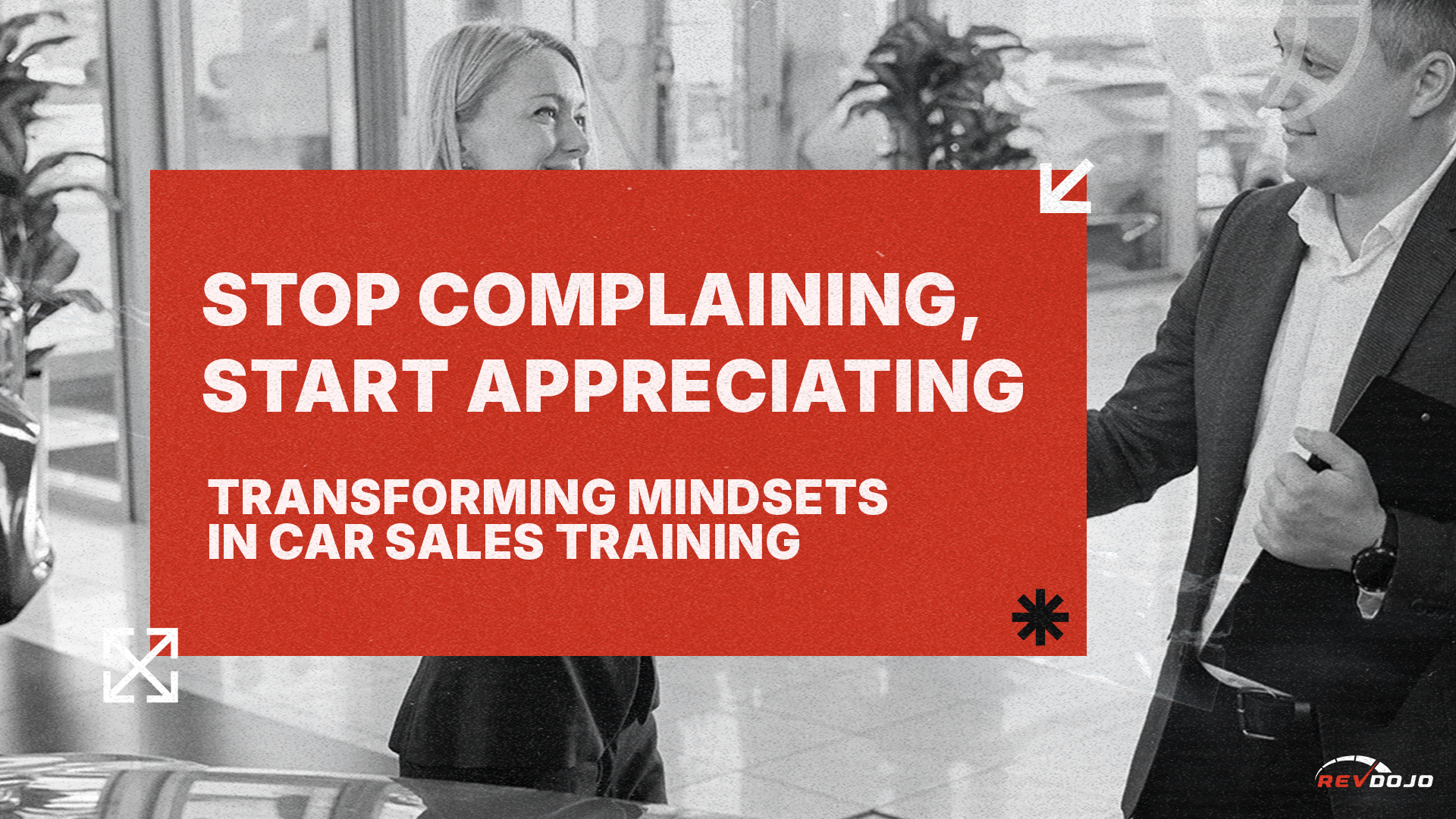
Stop Complaining, Start Appreciating: Transforming Mindsets through Car Sales Training
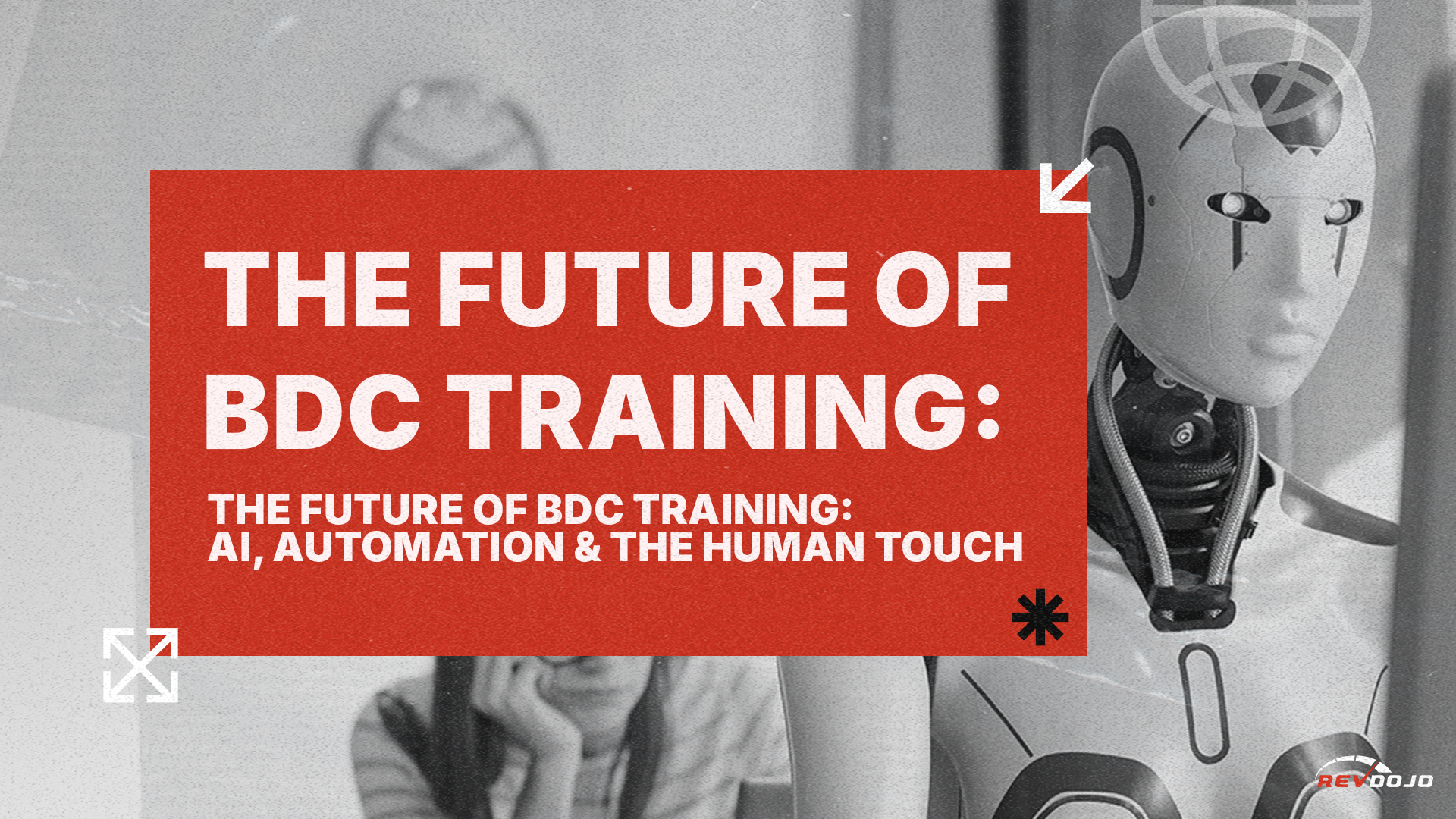
The Future of BDC Training: AI, Automation & the Human Touch
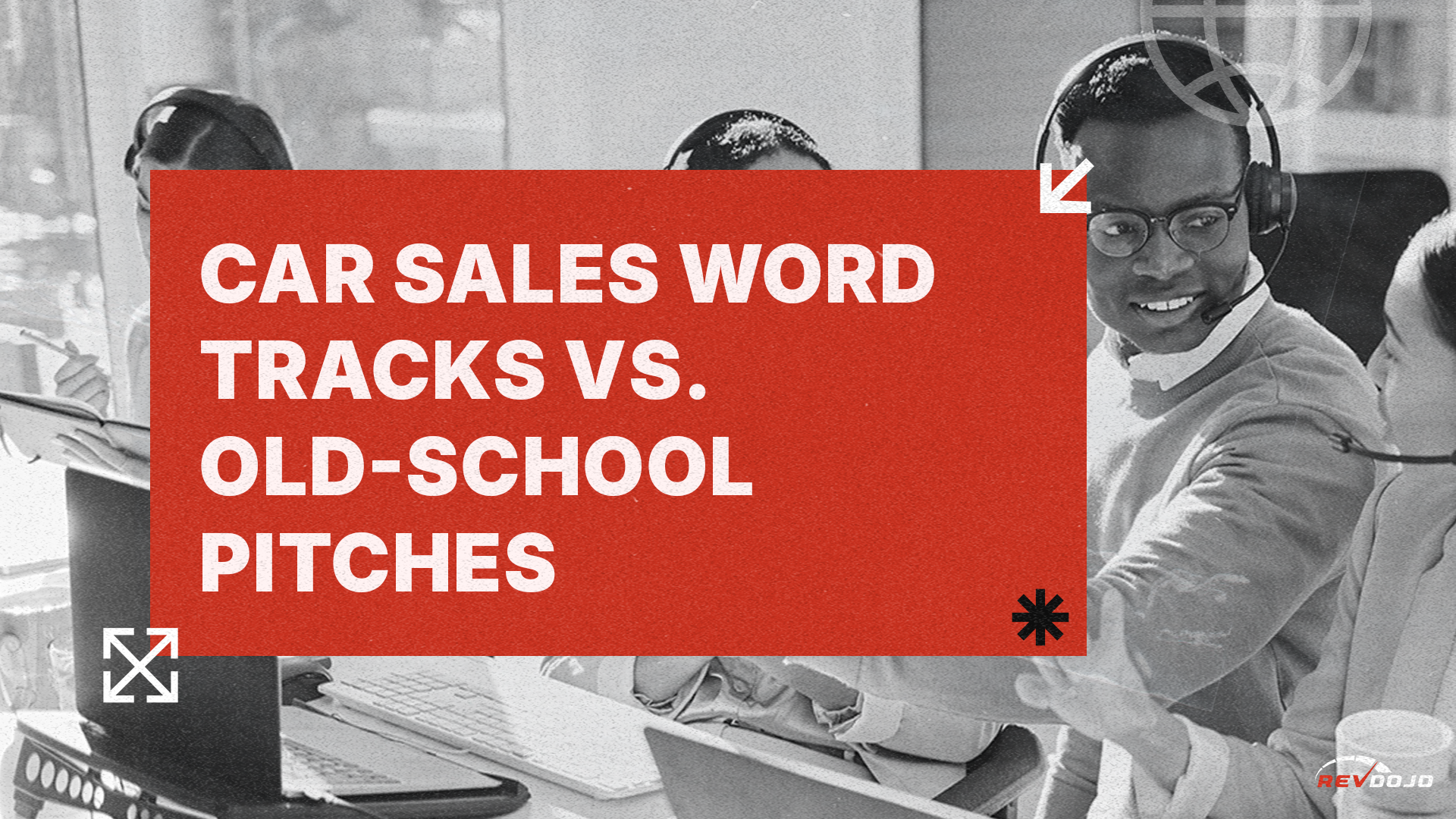
Car Sales Word Tracks vs. Old-School Pitches: What Works in Today’s Market
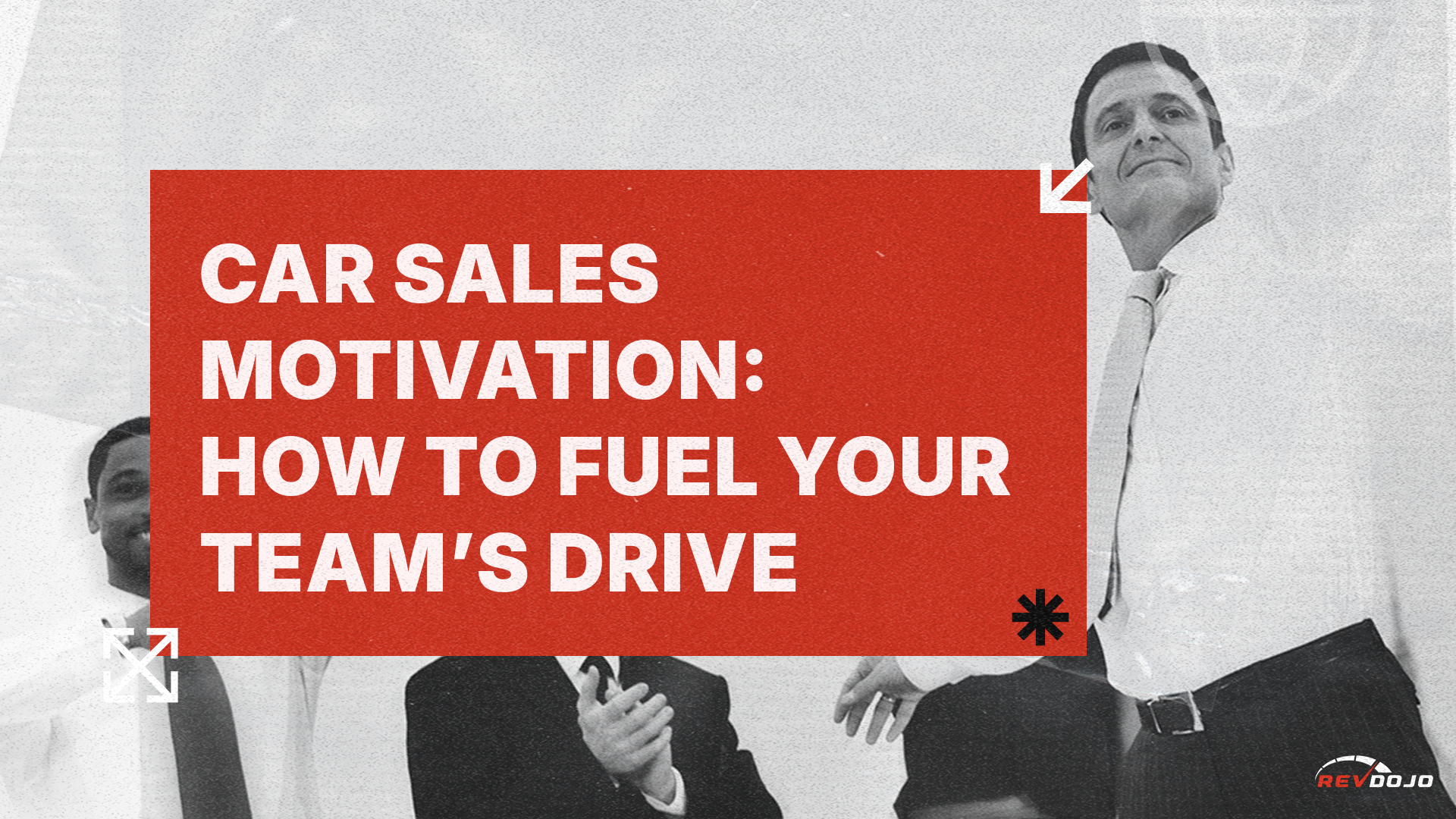
Car Sales Motivation: How to Fuel Your Team’s Drive—Every Day, Every Deal
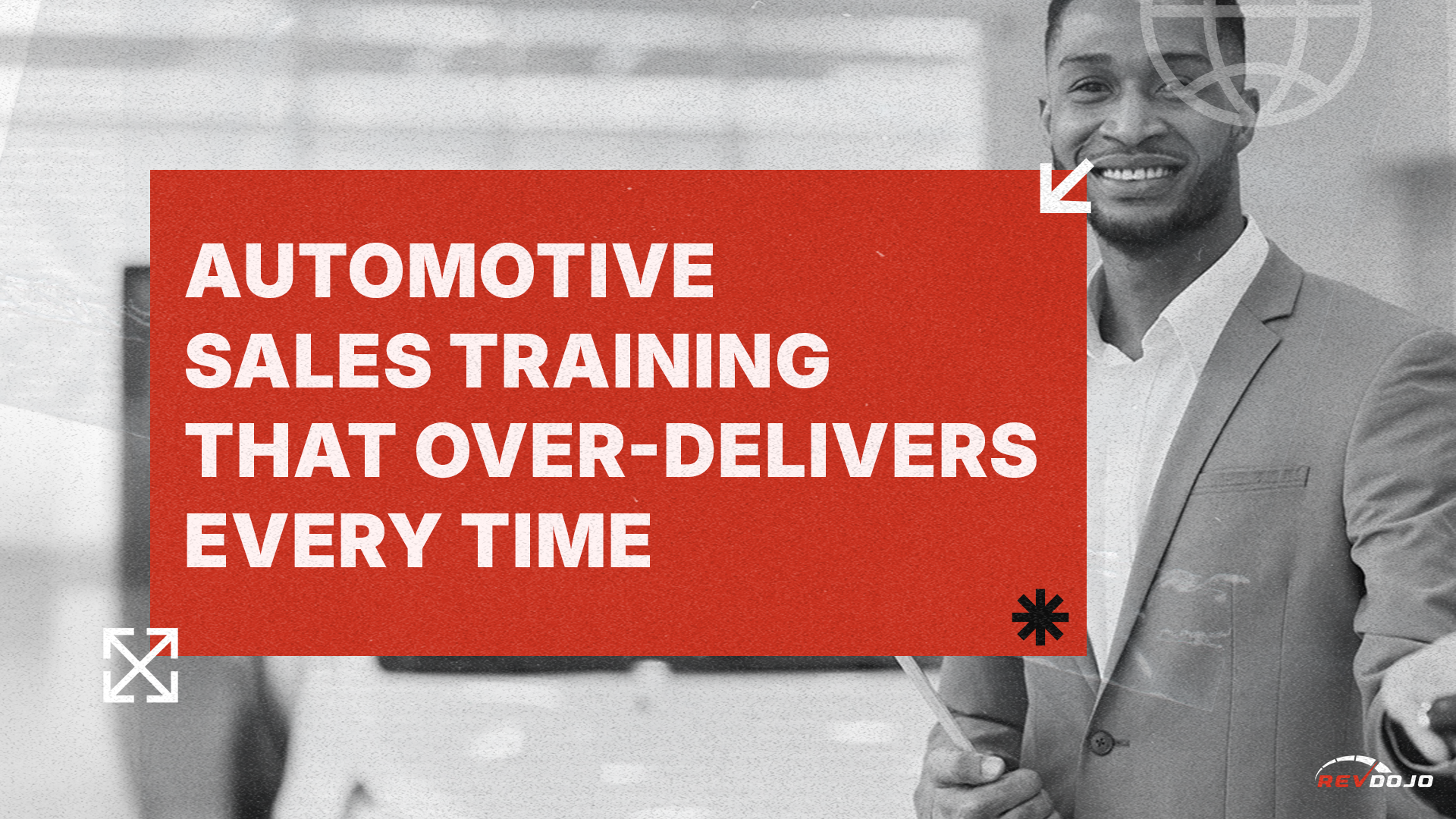
Automotive Sales Training That Over-Delivers Every Time

The Power of Leads Follow-Up: Turning Missed Opportunities into Closed Deals

Automotive AI & Human Synergy: The Future of Remote Car Sales
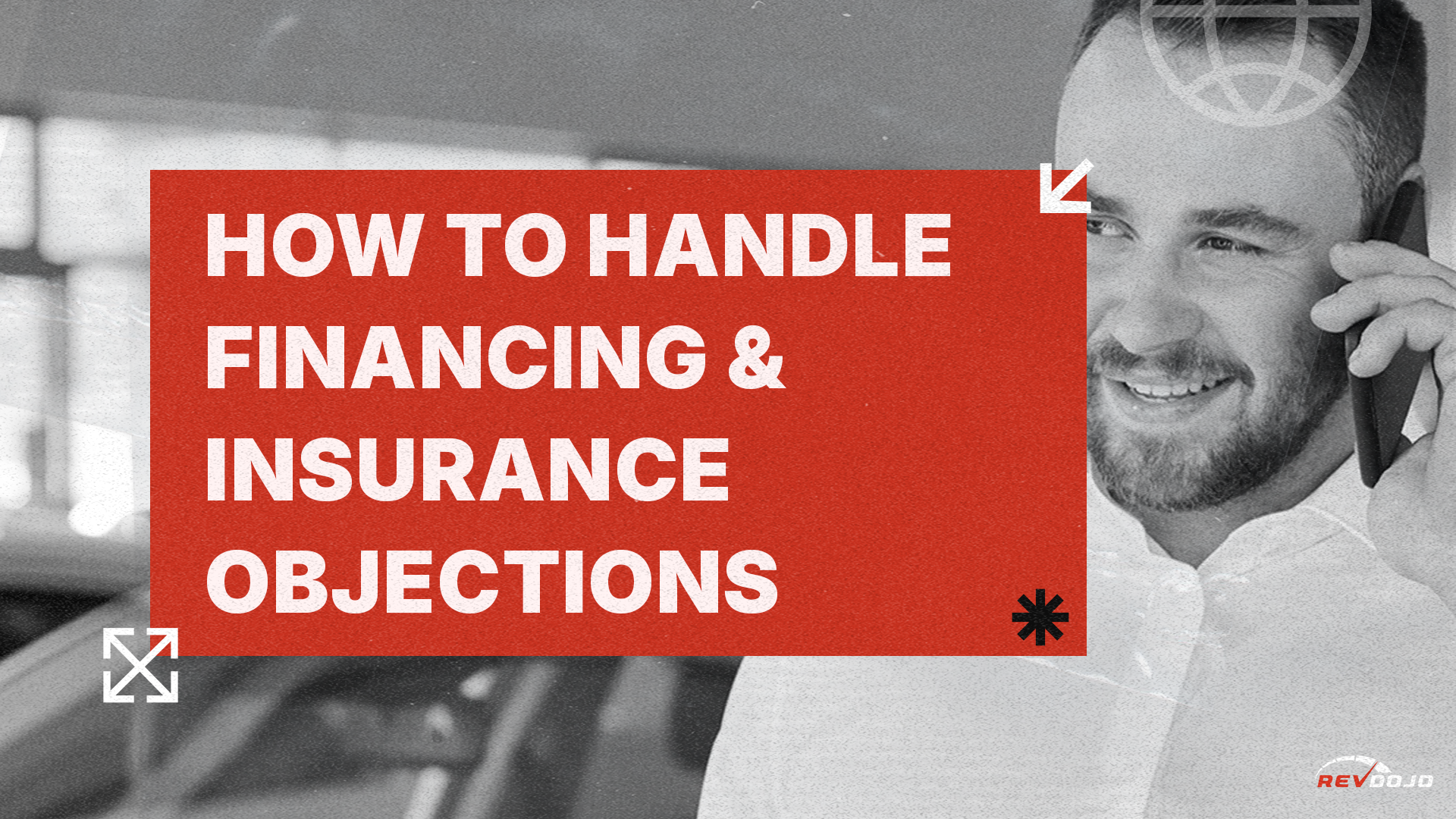
How to Handle Financing & Insurance Objections: Beyond Vehicle Price
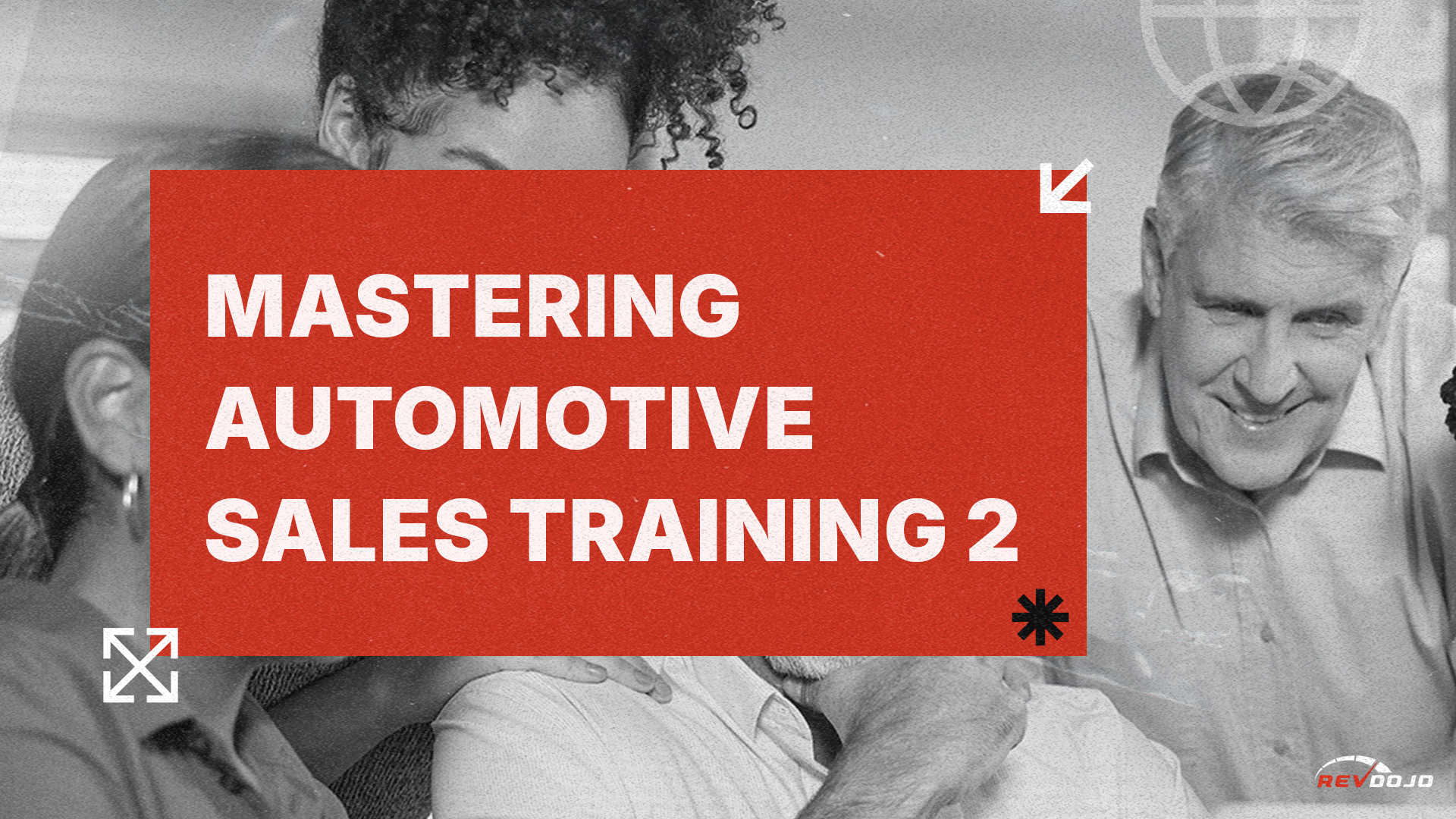
Mastering Automotive Sales Training – Part II
RevDojo is the all-in-one solution for automotive businesses looking to thrive in today's competitive market.
© 2024 Revdojo. All rights reserved.